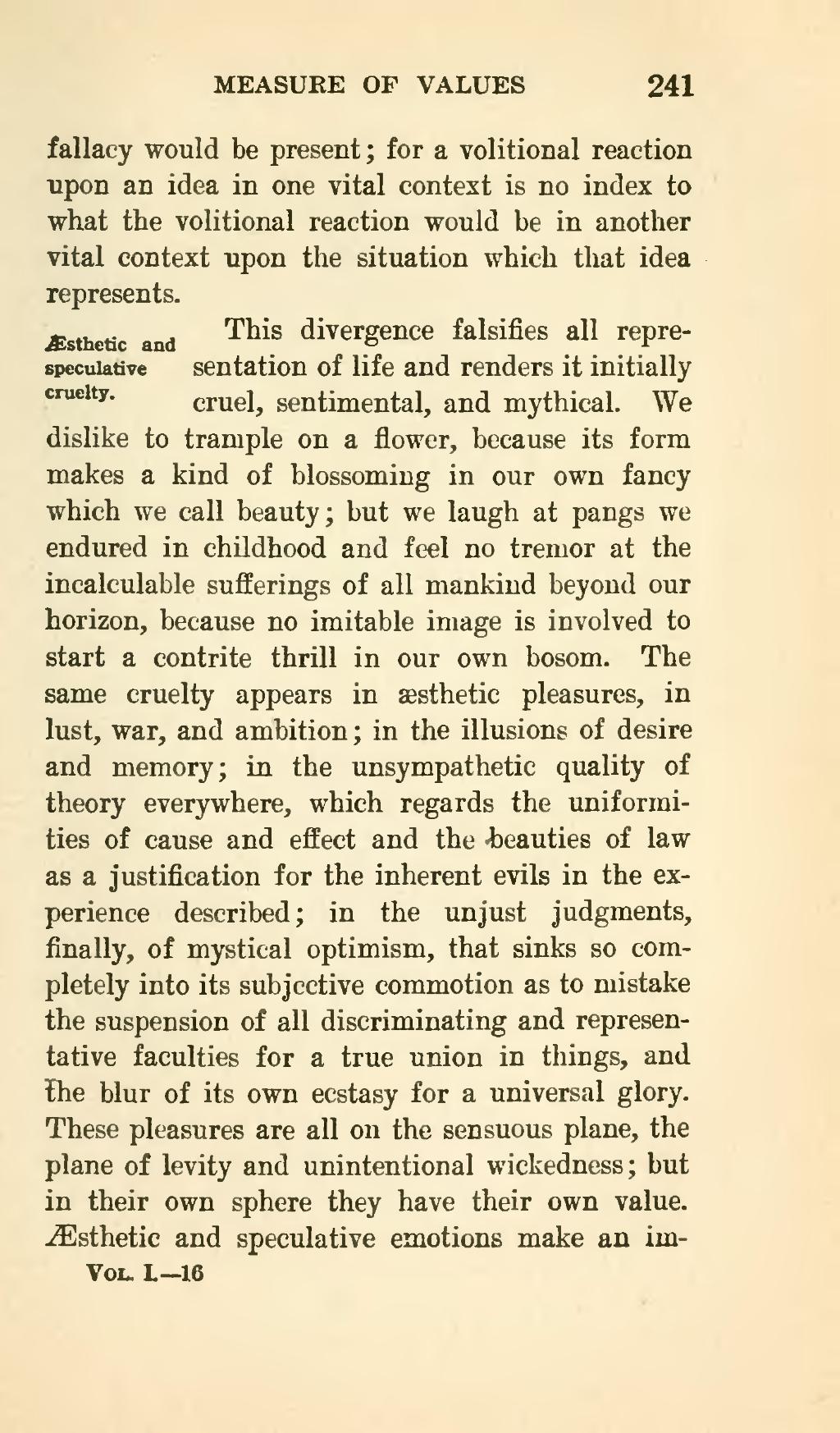fallacy would be present; for a volitional reaction upon an idea in one vital context is no index to what the volitional reaction would be in another vital context upon the situation which that idea represents.
This divergence falsifies all representation of life and renders it initially cruel, sentimental, and mythical. We dislike to trample on a flower, because its form makes a kind of blossoming in our own fancy which we call beauty; but we laugh at pangs we endured in childhood and feel no tremor at the incalculable sufferings of all mankind beyond our horizon, because no imitable image is involved to start a contrite thrill in our own bosom. The same cruelty appears in aesthetic pleasures, in lust, war, and ambition; in the illusions of desire and memory; in the unsympathetic quality of theory everywhere, which regards the uniformities of cause and effect and the beauties of law as a justification for the inherent evils in the experience described; in the unjust judgments, finally, of mystical optimism, that sinks so completely into its subjective commotion as to mistake the suspension of all discriminating and representative faculties for a true union in things, and the blur of its own ecstasy for a universal glory. These pleasures are all on the sensuous plane, the plane of levity and unintentional wickedness; but in their own sphere they have their own value. Æsthetic and speculative emotions make an im-
